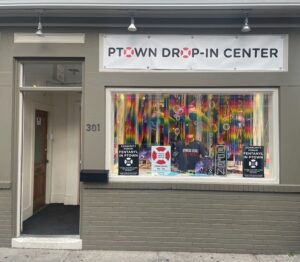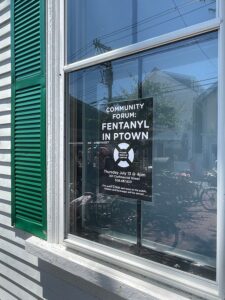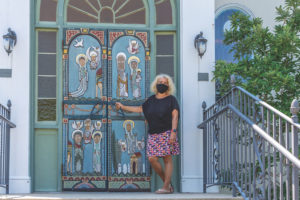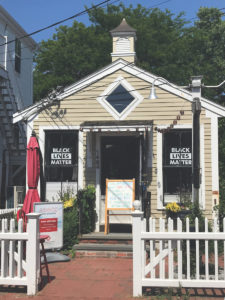The four Outer Cape towns began a joint effort on Jan. 1 to spend an unusual pool of money: $621,100 in “opioid remediation funds” that will come to the towns over the next 15 years.
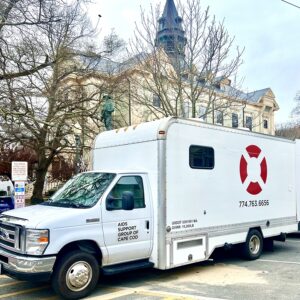
The money is a result of lawsuits filed by officials of various states and cities, including then Attorney General Maura Healey, against four companies that manufactured and distributed opioid pills.
The lawsuits were consolidated into one settlement agreement worth $26 billion; most of that money goes to state governments, however.
The towns have received roughly a quarter of their overall settlement money already, with the rest to come in small increments over time. The town health departments worked with each other and with the nonprofit Outer Cape Community Solutions to develop a spending plan for the irregular funding.
Over the next six months, the towns will together spend $41,865, which is about 27 percent of the money they have taken in so far — and about 7 percent of the money the towns will receive over the 15-year life of the program.
Of that amount, $25,000, or about 60 percent, will go to the AIDS Support Group of Cape Cod (ASGCC) for harm reduction efforts, including money for fentanyl test strips, naloxone rescue kits, and a mobile outreach van to help distribute those and other supplies across the Outer Cape.
The ASGCC currently has a mobile outreach van in Hyannis. The new funding is “not enough for us to dedicate a van full time to the Outer Cape, which is our ultimate goal,” said ASGCC CEO Dan Gates.
Spending Decisions
Advocates of harm reduction — a strategy that focuses on saving lives by providing resources such as clean needles, naloxone, test strips, and supervised use sites — have argued that the strategy is underfunded and understaffed relative to treatment and prevention programs. A recent Barnstable County Substance Use Assessment report found that about 30 times more money was spent on opioid treatment programs on Cape Cod than on harm reduction programs.
“We have to step it up on the Cape, period, as far as what we’re doing for harm reduction,” said Kim Powers, executive director of Access HOPE and longtime harm reduction practitioner.
The funding of the ASGCC van is a welcome change, Powers said, but it’s “not enough.”
The next largest expenditure in the Outer Cape’s joint program is $5,000 for the Cape Cod Children’s Place, for its “discretionary fund” to help parents working on recovery with urgent expenses, such as car repairs or winter clothes. That allocation amounts to about 12 percent of the $41,865 spending plan.
After that, however, the plan paid for two yoga classes, a stress reduction class for teens, an art program for teens, and alternative health treatments for participants in the Structured Outpatient Addiction Program at Outer Cape Health Services.
Although those expenditures were small — $2,700 for the adult recovery yoga class, $1,100 for the young-adults recovery yoga class, $1,925 for the stress reduction program, $1,940 for the art program, and $1,200 for the alternative health treatments — they added up to $8,865.
At a Dec. 18 presentation on the spending plan to the Eastham Select Board, board member Jamie Demetri criticized these small allocations.
“How many people are going to be served — like three?” she said of the $1,200 allocation for alternative treatments at Outer Cape Health Services.
According to the presentation by Outer Cape Community Solutions coordinator Alex Nelson, the alternative treatments would be those not already covered by insurance, such as art, mindfulness, movement, sound therapies, and acupuncture.
Nelson told Demetri that one reason the allocations for those programs were so small is so that the four towns can wait to see how the programs are used and adjust spending accordingly.
Nelson also said that the towns are trying to stockpile funds, given that the amount received from the opioid settlement will decline in future years.
Rita Letsos is teaching the yoga for recovery class at Eastham’s Chapel in the Pines on Thursdays at 4 p.m. She is also a recovery coach at Outer Cape Health Services.
“Yoga helps to emotionally stabilize the mind,” Letsos said, and offers “a safe environment.” It can also help with “recovery and treatment of addiction, reduced stress, anxiety, depression, and chronic pain,” Letsos said.
“Giving it to yoga — I don’t know what that does to help people not overdose and die,” Powers argued. “The person that’s using drugs is the one that’s going to die, so you have to work with the person who’s using drugs. People still have a huge barrier when it comes to that.”
Senior Reporter Paul Benson contributed reporting.
